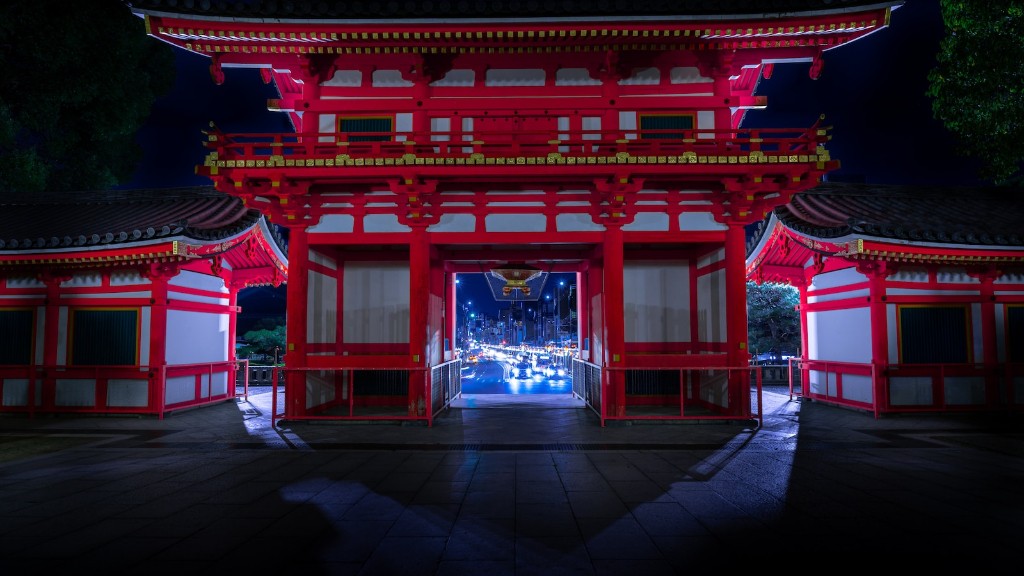Does it surprise you that Jesus may have traveled to Japan? Many people are amazed when they hear this possibility mentioned. In this article, we are going to explore this intriguing topic and look at what research has revealed.
The primary source of evidence for Jesus’ journey to Japan is the book of Matthew in the Bible. This is the only place in the Bible where it mentions Jesus traveling to Japan. It’s also the only place in the Bible which promises a return if the Japanese accept Christianity. According to the book of Matthew, Jesus said: “Verily, I say unto you, that in Japan, whithersoever I go, shall they also be with me.”
Another source that lends credence to Jesus’ visit to Japan is art. In Japan, many pieces of art depict Jesus in a strong and prominent role. For example, there are many paintings and sculptures of Jesus in traditional Japanese temples. This suggests that he had an important role in the culture and that he was widely accepted.
Historians have also attempted to provide evidence about Jesus’ journey to Japan by tracing the influence of Christianity. According to historical sources, Christianity was brought to Japan in the 7th century by the Greek monk St. Barlaam. This suggests that Christianity was well established in Japan by the time the book of Matthew was written.
One of the most intriguing pieces of evidence for Jesus’ journey to Japan is stories. Folk tales and legends from a range of cultures tell stories of Jesus travelling to Japan. Some of these stories also suggest that he stayed in Japan for a while and taught the people about Christianity.
Many experts believe that there is enough evidence to suggest that Jesus did travel to Japan. At the very least, the stories, art, and history provide an interesting debate on the topic. It is certainly possible that Jesus did visit and leave an indelible mark on the country.
The Impact of Christianity on Japan
The influence of Christianity in Japan can’t be overlooked. Christianity has had a profound impact on Japan’s culture, values, and beliefs. Firstly, many of Japan’s cultural values stem from Confucianism, which is a loosely-structured set of teachings brought to Japan during the introduction of Christianity. Secondly, many of the trends in art, music, and literature in Japan were influenced by Christian artists, such as Chagall and Dostoevsky. Finally, Japan’s beliefs are heavily based on the teachings of Jesus, such as compassion and empathy.
Christianity has also had a huge effect on Japanese politics. Japan was once a tight-knit and exclusive group. But with the introduction of Christianity, Japan has opened up to the world and become more tolerant of other countries and cultures. This has had a massive impact on international politics and has been largely positive.
Finally, Christianity has helped bring nations together. Japan has become an influential leader in the region and has been able to bridge gaps between countries. Now, the whole region adheres to Christianity and there is much stronger cooperation between nations.
Conclusion
Whether or not Jesus traveled to Japan, it is clear that Christianity has had a huge impact on the country. It has changed the culture, values, beliefs, and politics of the country and has helped unite the region. While there is no conclusive evidence that Jesus did visit the country, it is still possible that he did have an influence on the nation – and it’s something worth exploring further.
Christianity in Japan Now
Today, Christianity is alive and well in Japan. There are many churches and temples scattered throughout the country, and the number is growing. Christianity is now the second most popular religion in the country, after Shintoism. The Christian population is estimated to be around 1 million people.
Christianity has also had a large impact on Japan’s politics. The ruling party, the Liberal Democratic Party, is very Christian-friendly and is actively pushing a Christian agenda. This has been met with resistance from both believers and non-believers. However, it has not ushered in a period of religious tension – instead, the country has become more tolerant of different religions.
Finally, Christianity is becoming more and more mainstream in Japan. It can now be seen in popular culture, such as movies, TV shows, and music. Some people are even turning to Christianity as an alternative to the traditional Shinto religion.
Japan’s Stance on Christianity
Japan is a complex country when it comes to Christianity. On one hand, it is becoming more and more tolerant of religion. On the other, it is still somewhat conservative and reluctant to accept newer forms of religion.
The government is largely Christian-friendly, but more traditional elements of Japanese society are still wary of Christianity. There are strict rules about how missionaries can conduct their work, and there has been a recent crackdown on foreign pastors. But there is no real animosity towards the religion – it is simply seen as foreign and strange by some.
Further, Japan is largely still a Shinto country. People generally practice a mixture of Christianity and Shinto, and many converts mix the two religions together. Some argue that the two religions are incompatible, but many others believe that they can coexist in harmony.
The Importance of Christianity in Japan
It is clear that Christianity has had a significant effect on Japan’s culture and politics. It has opened up the country to the world, united regional nations, and created an atmosphere of tolerance and acceptance. Christianity is now an important part of the Japanese identity, and it is something that should be respected and valued.
Christianity can still be somewhat controversial in Japan. But it has begun to gain more acceptance and recognition. People are beginning to see the value of Christianity, and it is becoming more and more embedded in the culture. It will be interesting to see how Christianity will continue to shape Japan’s culture and beliefs in the years to come.




